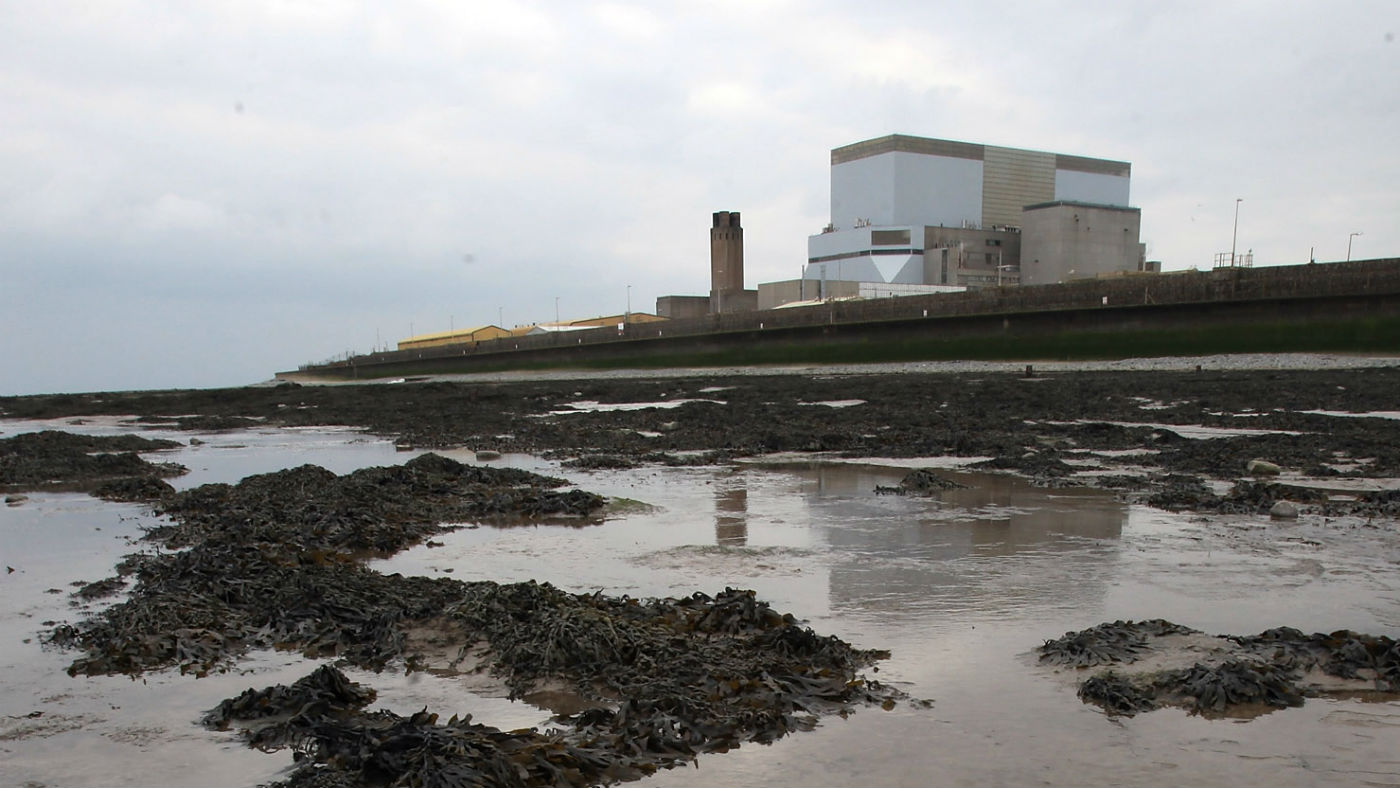Hinkley nuclear deal ��will hit poorest the hardest’
MPs say ‘blinkered’ policies could lead to £30bn shortfall and spiralling bills

A free daily email with the biggest news stories of the day – and the best features from TheWeek.com
You are now subscribed
Your newsletter sign-up was successful
The Government failed to protect energy consumers when agreeing a deal to build the Hinkley Point nuclear reactor, leaving taxpayers to make up a £30bn funding shortfall.
Along with rising energy bills, the public cost will “hit the poorest the hardest”, according to the cross-party Public Accounts Committee, which has published a report on the Hinkley deal.
The committee chair, Meg Hillier, said the “blinkered determination to agree the deal” shown by successive governments “means that for years to come energy consumers will face costs running to many times the original estimate”.
The Week
Escape your echo chamber. Get the facts behind the news, plus analysis from multiple perspectives.

Sign up for The Week's Free Newsletters
From our morning news briefing to a weekly Good News Newsletter, get the best of The Week delivered directly to your inbox.
From our morning news briefing to a weekly Good News Newsletter, get the best of The Week delivered directly to your inbox.
In 2013, the coalition government agreed to give France’s EDF a minimum price guarantee of £92.5 per megawatt hour for 35 years. This means the Government will have to pay the difference between the wholesale electricity price and the minimum it has promised, a figure the National Audit Office believes could reach £30bn, five times more than originally expected.
“Over the life of the contract, consumers are left footing the bill and the poorest consumers will be hit hardest,” said Hillier. “Yet in all the negotiations no part of Government was really championing the consumer interest.”
The Government is trying to reduce household energy prices, reports Reuters, “but is under pressure from suppliers, who say policy costs are partly responsible for spiralling bills”.
Despite repeated delays and questions over the value of the deal to the British taxpayer, Theresa May gave it the green light last summer.
A free daily email with the biggest news stories of the day – and the best features from TheWeek.com
EDF has also faced questions from its shareholders - and the French Government, which controls a majority stake in the energy company - about the long-term benefits of building the plant, especially after it was forced to secure further investment from Chinese partners.
Further nuclear plants planned in Britain by Japanese and Chinese firms will need support from government, and Wednesday’s report urges ministers to “evaluate the strategic case before agreeing any more deals”.
-
 How the FCC’s ‘equal time’ rule works
How the FCC’s ‘equal time’ rule worksIn the Spotlight The law is at the heart of the Colbert-CBS conflict
-
 What is the endgame in the DHS shutdown?
What is the endgame in the DHS shutdown?Today’s Big Question Democrats want to rein in ICE’s immigration crackdown
-
 ‘Poor time management isn’t just an inconvenience’
‘Poor time management isn’t just an inconvenience’Instant Opinion Opinion, comment and editorials of the day
-
 How corrupt is the UK?
How corrupt is the UK?The Explainer Decline in standards ‘risks becoming a defining feature of our political culture’ as Britain falls to lowest ever score on global index
-
 The high street: Britain’s next political battleground?
The high street: Britain’s next political battleground?In the Spotlight Mass closure of shops and influx of organised crime are fuelling voter anger, and offer an opening for Reform UK
-
 Is a Reform-Tory pact becoming more likely?
Is a Reform-Tory pact becoming more likely?Today’s Big Question Nigel Farage’s party is ahead in the polls but still falls well short of a Commons majority, while Conservatives are still losing MPs to Reform
-
 Taking the low road: why the SNP is still standing strong
Taking the low road: why the SNP is still standing strongTalking Point Party is on track for a fifth consecutive victory in May’s Holyrood election, despite controversies and plummeting support
-
 'This is exactly what technology should be doing'
'This is exactly what technology should be doing'Instant Opinion Opinion, comment and editorials of the day
-
 What difference will the 'historic' UK-Germany treaty make?
What difference will the 'historic' UK-Germany treaty make?Today's Big Question Europe's two biggest economies sign first treaty since WWII, underscoring 'triangle alliance' with France amid growing Russian threat and US distance
-
 Is the G7 still relevant?
Is the G7 still relevant?Talking Point Donald Trump's early departure cast a shadow over this week's meeting of the world's major democracies
-
 Angela Rayner: Labour's next leader?
Angela Rayner: Labour's next leader?Today's Big Question A leaked memo has sparked speculation that the deputy PM is positioning herself as the left-of-centre alternative to Keir Starmer